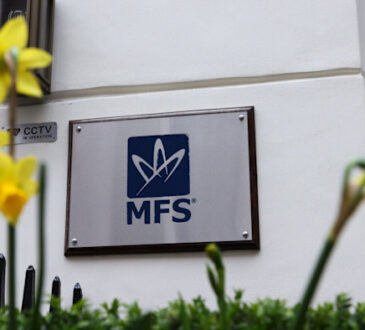Schroder REIT manager Nick Montgomery (pictured) says UK commercial real estate is in recovery following an ‘unprecedented’ period in which rents rose while values fell.
The REIT, which Montgomery manages alongside Bradley Biggins, announced its results for the year to the end of March last week, revealing an 11% net asset value total return over the period — Schroder REIT’s strongest annual performance since 2022.
UK commercial property has undergone a correction over the last few years, with most sectors falling by up to 25% after peaking in 2022 according to MSCI.
Since the start of the year, however, capital values for UK commercial real estate have ticked upwards, rising by 0.3% in May according to the latest CBRE UK Monthly Index.
See also: Alan Bartlett: Four macro factors changing investor behaviour
“We’re now seeing a slight recovery,” says Montgomery, who doubles as the global head of real estate at Schroder Capital. “I’d say that it’s a bit like Groundhog Day, because investors begin to feel there’s momentum and then there’ll be another tariff announcement.
“But fundamentally in terms of how investors view real estate today, it’s a really interesting point in the cycle to be looking.
“A 25% value correction is pretty significant. The GFC was 44%, the 90s recession was about 25%, but what’s different this time, and this is unprecedented, is that values are going down and rents are going up. What’s happening is that real estate is doing essentially what you’re taught it should do, which is acting as a hedge against inflation.
“Now, real estate is not a good hedge against inflation on the capital side, because obviously interest rates rise in response to inflation, but it is good at acting as a hedge on the income side. In that period of time over the last few years when values fell 25%, rents went up c.10% on average. Even offices went up in rent.
“It says there is a chronic undersupply of space, particularly in the more structurally supported sectors. Most of the towers you can see in the City are in the majority let or won’t be built unless there are meaningful pre-lets being agreed.”
Turning brown to green
According to the latest United Nations Environment Programme Report, buildings are responsible for 34% of energy-related CO2 emissions.
Just over 18 months ago, Schroder REIT updated its strategy with a greener tilt, aiming to reduce the emissions of its portfolio.
As most of the current real estate stock will likely be required and in use for decades, the team believes there is an opportunity to enhance returns by bringing buildings up to modern sustainability requirements.
“We have conviction that there is a green premium — tenants will pay more rent to occupy buildings with high sustainability performance,” Montgomery says. “Equally, investors are increasingly concerned about that obsolescence risk of buildings that have a poor sustainability standard.
“It creates mispricing, because if you have the capabilities on the ground to buy the ‘brown’ buildings and turn them into ‘green’ buildings, then you can enjoy the arbitrage of buying at discounts and realising premium rents through delivering those improvements.”
See also: Polar Capital Global Financials completes tender offer
Two key holdings, the Stacey Bushes Industrial Estate in Milton Keynes and Stanley Green Trading Estate in Manchester, have achieved rental uplifts of up to 40% as part of the trust’s sustainability initiatives.
The industrial development at the Stanley Green site is operationally net zero.
While London properties naturally make up a significant portion of the portfolio, the government’s announced infrastructure spending projects elsewhere in the UK have increased their attraction from a real estate perspective.
“One of the reasons why we’re so invested in Manchester is because of infrastructure investment. Whether it’s education, the BBC, or rail connections,” adds Montgomery.
“The UK needs to be more geographically even in terms of its growth, so as much as we will continue to invest in London because we’re expecting high level growth, we think Manchester is a huge growth area. It still has real potential, partly because of good local leadership and public investment.”
The REIT has overweights to the retail warehouse and industrials sectors. The managers credit those allocation decisions towards higher growth areas of commercial real estate as a key contributor to outperforming its MSCI UK Balanced Portfolios Quarterly Property Index over the longer term.




